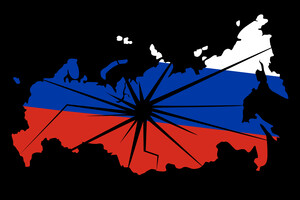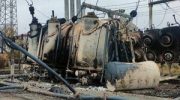Although the introductory part of almost every sentence says that everything should happen quickly.

Instead of a full embargo on Russian oil, gas and coal and immediate commitments of EU countries to stop trade in petroleum products from Russia and Belarus, sanctions should be implemented gradually. At least that is what the proposals to strengthen sanctions developed by the Ermak-McFaul International Working Group say. Yulia Samaeva, editor of the ZN.UA economic department, writes about this – “Plan to strengthen sanctions against Russia. Ukrainian version”.
The intermediate steps outlined in the document propose to introduce tariffs on imported Russian energy, accept payment for them on escrow accounts, which will be accessible only after the end of the war, ensure compliance with EU commitments to stop buying Russian gas by 2027, and up to energy efficiency and the transition to alternative energy sources.
The introductory part of almost every sentence says that everything should happen quickly and even urgently. But somehow it doesn't work out very quickly.
The details of implementing escrow accounts are also very annoying. The money should be unavailable without exception, but the document now provides that the money can be used for trade that is not subject to sanctions, such as food or medicine. Too noble, given the suggestion that access to the funds in these accounts should be opened immediately after the end of the war. But all of us, including the authors of the document, understand that the threat of a subsequent invasion after the war will not go away. Sanctions are necessary not only to stop the current aggression, they must prevent the next one. It would be more appropriate to keep these exceptions, such as food and medicine, for the post-war period, but to keep the ban on using oil and gas money to build up military capabilities after the war.
Read also: Russia suspends gas supplies to Poland and Bulgaria
Other materials of Yulia Samaeva can be read at the link.




